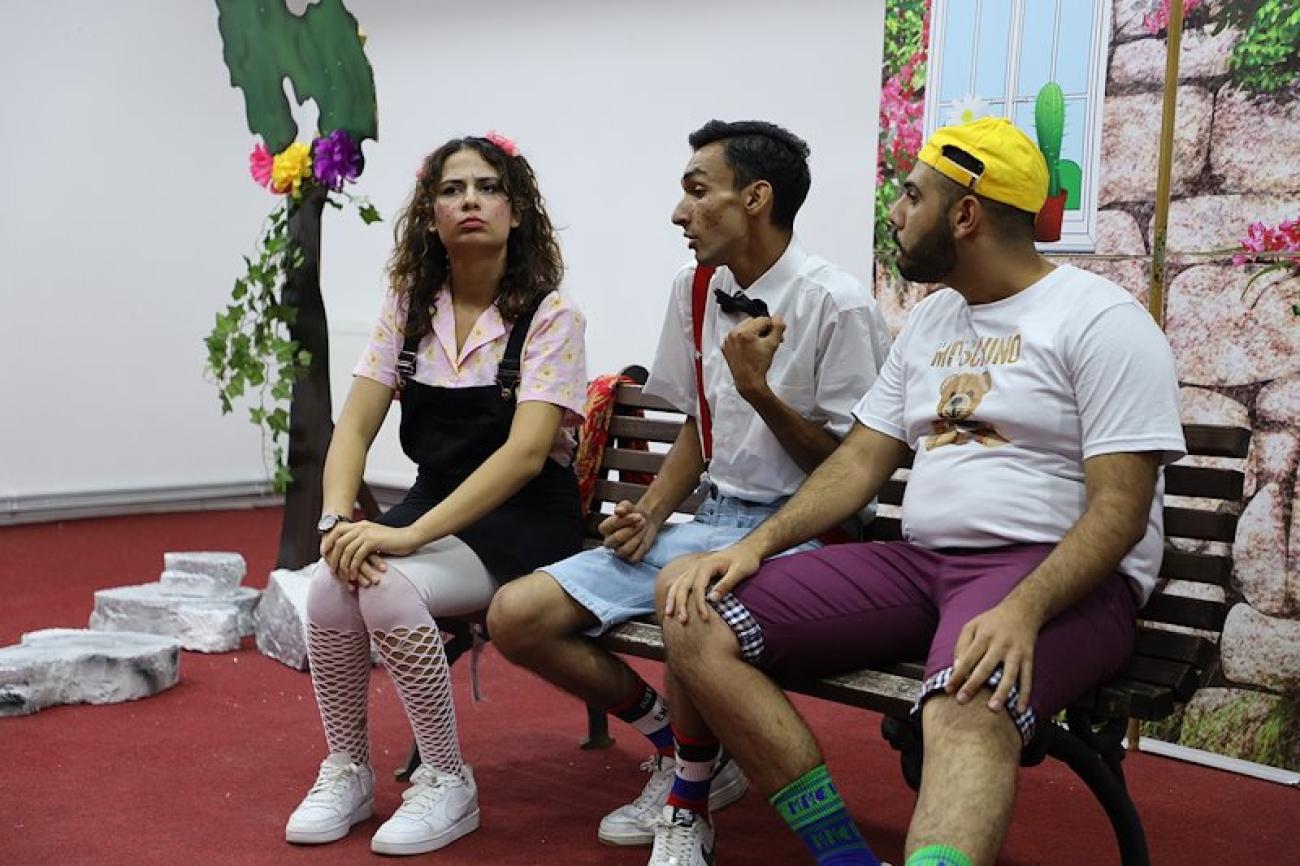“HOLAMO QHAVORO” PROMOTES ROMANI LANGUAGE AND HERITAGE VALUES

The “Stubborn Guy” – a theater play, originally written in Turkish language and adopted in the Romani language – dedicated to children.
The ‘Youth Centre’ in Prizren was buzzing with sounds. The schoolchildren, parents, as well as representatives of the art and theatre of the Kosovo Roma and the Kosovo Turkish communities were enthusiastically waiting for the “Stubborn Guy” – a theater play, originally written in Turkish language and adopted in the Romani language – dedicated to children.
.jpg?auto=webp)
.jpg?auto=webp)
Melisa, an actor who portrays “Gita” in the play walks up the stage with lively movements - followed by a long round of applause. She was shortly joined by her two friends, “Anand” and “Akbar” who - same as her - are a bit upset from the behavior of one of the other guys in their hood, whom they nicknamed the “Stubborn Guy”. He is causing trouble around with his dog, refuses to go to school and doesn’t want to play with others.
So, they come up with an idea - to invite the “stubborn guy” to play with them and through different creative games, tell him the importance of going to school but also the need to learn about heritage and traditions of the Roma community.
.jpg?auto=webp)
.jpg?auto=webp)
“We wanted to offer Roma children a play in Romani language, and through laugh and play, make them learn about Roma symbols, tradition, and costumes”, says Gynesh Veshall.
Gynesh, and her colleague Jasir Misini, Roma community volunteers and activists noticed through their work that Roma children are hesitating more and more to use their mother tongue. For several years now, Gynesh and Jasir have been engaged in different projects and initiatives focused on Roma rights and raising awareness on the importance of Roma children’s participation in preschool education. In addition, they are both artists who have been part of several theatre plays.
.jpg?auto=webp)
.jpg?auto=webp)
Gynesh and Jasir believe that the theatre is the best channel to share messages and raise awareness, so they came up with a creative idea, to educate children from their community for the values of Romani language and the importance of learning and promoting their heritage – all this through artistic ways.
Their idea of promoting Romani language and enriching Roma theater received support through the “Challenge Prize Competition”, an initiative that is part of the “Cultural Heritage as a Driver for Intercommunity Dialogue and Social Cohesion” project implemented by UNDP Kosovo and funded by the European Union. The initiative is focused on supporting talented young women and men – focusing on marginalized groups – to develop their ideas for promoting, interpreting, or re-interpreting intangible cultural heritage, or developing skills and gaining work experience, and raising awareness of the richness and diversity of cultural heritage in Kosovo.
.jpg?auto=webp)
“This is the first Roma theatre play produced specifically for children. There are many plays put on stage throughout the years but none of them had children on the spotlight, says Jasir, who is also part of the cast.
Both Gynesh and Jasir cannot hide the pride and joy from all the love and appreciation received from the public. Although the play is in Romani language, around 40 schoolchildren from the Turkish, Bosniak and the Albanian communities came to see the performance along with 60 kids from the Roma community.
“Kids understand better the language of emotions, and art is the best promoter”, says Gynesh who is happy to see room full of children not only to learn about Roma heritage - but also cherish new friendships together and build a sense of appreciation for different cultures.
"Through this play we enriched the society with our heritage, therefore, a small impact of raising awareness now is a long-lasting impact for our future", Gynesh concluded.
.jpg?auto=webp)
All the positive feedback - not only from the Roma community but also from other communities - is encouraging Gynesh and Jasir brainstorm to find ways and funds to play their drama in other locations across Kosovo as well.
Gynesh and Jasir believe that children from the Roma community all over Kosovo deserve to have a chance to gather and watch the play, have some fun and reflect on their rich heritage and values as a community.
.png?auto=webp)
Story by Mimoza Kqiku



